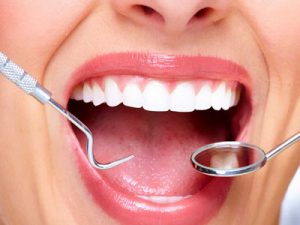Most people do not have space available in their mouths for their third set of molars. These molars, called wisdom teeth, must be removed in order to prevent or correct overcrowding problems. When there is no room for them, wisdom teeth may become trapped, or impacted, within the gums where they can move a patient’s bite out of alignment or can cause other teeth to shift. Even wisdom teeth that are not impacted (i.e. they are able to break through the gums into the mouth) may crowd other teeth and require extraction. By removing wisdom teeth, a patient’s smile can be preserved.
Wisdom Tooth Extractions
When Should I Get My Wisdom Teeth Removed?
Early removal is recommended to avoid future problems and to decrease the surgical risk involved with the procedure. By waiting until an older age, the risk associated with wisdom tooth removal and the recovery time from the procedure tends to increase. It is always preferable to remove wisdom teeth when they are not causing an emergent problem.
Thinking About Getting Your Wisdom Teeth Removed?
Wisdom teeth are the last adult teeth to come into the mouth. Most people have four wisdom teeth at the back of the mouth — two on the top, two on the bottom. Impacted wisdom teeth can result in pain, damage to other teeth and other dental problems. Since they’re hard to clean, they may be more vulnerable to tooth decay and gum disease than other teeth are. When they are partially-erupted, the opening around the teeth allows bacteria to grow and will eventually cause an infection. The result is swelling, stiffness, pain and illness.
What To Expect After Surgery
In most cases, the recovery period lasts only a few days. The following will help speed recovery:
- Take painkillers as prescribed by your dentist or oral surgeon.
- After 24 hours, rinse your mouth gently with warm salt water several times a day to reduce swelling and relieve pain.
- Change gauze pads before they become soaked with blood.
- Relax after surgery. Physical activity may increase bleeding.
- Avoid smoking.
- Eat soft foods, such as gelatin, pudding, or a thin soup. Gradually add solid foods to your diet as healing progresses.
- Do not lie flat. This may prolong bleeding. Prop up your head with pillows.
- Avoid rubbing the area with your tongue.
- Continue to carefully brush your teeth and tongue.


